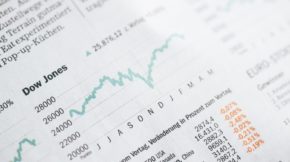Brexit: The EU’s Worst Nightmare and a Global Bloodbath
Share

On Friday, June 24th, 2016, humanity woke up to a new world order. Brexit – Britain’s exit from the European Union – finally takes effect five months after Prime Minister David Cameron made the decision to hold a referendum on Britain’s connection with the EU. With 51.89% in favour of and 48.11% against leaving the EU, Britain takes an extraordinarily catastrophic leap out of its EU membership. The markets and economies haven’t taken a hit this big since the collapse of Lehman Brothers. It’s clear that there’s a lot of conflicting views on this catastrophe, so let’s take a look at the data to see what all this buzz is really about.
IMPACT ON GLOBAL ECONOMY
The overall effect of an almost even split vote on the UK referendum certainly created a ripple effect for various economies around the world. The United Kingdom, undoubtedly the most impacted economy, is expected to become not only weaker and poorer but also no longer united with the rest of Europe. Likewise, even Scotland has become doubtful about remaining a part of the UK in the future as most of its citizens voted in favour of remaining in the EU and no longer see hope in the country’s economic situation. The Northern Ireland pro-independence party also plans for an Irish referendum in favor of removing Northern Ireland out of the UK. It’s quite unfortunate that the decision made by those who voted to leave the EU in favour of “freedom and peace” have, in fact, caused the complete opposite by disconnecting Britain from the rest of its member countries in such a negative manner.
The UK’s own Prime Minister, David Cameron, who first set the referendum without the expectation that it will go in favour of the Leave party, has decided to resign because he believes that the UK needs a leader who is pro-brexit in order to steer it out of the EU. By the looks of it, former London mayor Boris Johnson seems to be the most qualified successor to replace David Cameron as he strongly campaigned for the UK’s departure from the EU. Former British Prime Minister Tony Blair claims that “Leave voters will learn over the next two years that their decision would not solve their economic troubles, ease their apprehensions, or make Britain more independent in a meaningful way”.
IMPACT ON GLOBAL MARKETS
In the past five days, the British and European stock markets had a positive reaction as they anticipated a pro-EU vote in the UK referendum. So if this was the case, why did the Britons vote against their own financial and economic benefits? Brexit was certainly an astonishing move for the financial markets as it blew away global confidence and may prevent the Federal Reserve from raising interest rates later on this year. This may also provoke an emergency policy that will ease all the major central banks through this global financial tightening. Regarding the stock markets, more than $2 trillion were wiped off the values of world stocks on Friday morning, with 10% falls across Europe’s biggest markets. Brexit had a negative impact on all asset classes and sectors, which lead investors to flee to the safe-harbors of U.S. treasury bonds, gold stocks, and the Japanese yen. The U.S. Treasury bonds hit their lowest yield since 2012 as investors shifted into other bonds which are not as risky, like sovereign bonds.
In the Asian timezone, the U.S. 10-year Treasury futures spiked more than 2 points. Not to mention that the cash note on yields plummeted .25 percent to 1.5 percent, the worst intra-day decline since the financial crisis of 2009 and the lowest yield in four years. Meanwhile, the major threats that Brexit had were on commodities as U.S. crude shed three dollars to $47.57 a barrel while sterling sank a rough 10% before recovering slightly. “It’s going to be a scary day,” said Commonwealth Financial’s chief investment officer Brad McMillan as the S&P TSX index dropped 239.57 points (-1.7%), Dow Jones Industrial Average stooped 610.32 points (-3.39%), and the S&P 500 sank 75.91 points (-3.59%).
CONCLUSION
There is no say in what will happen next with the British government and the European Union. Britain has just lost its greatest means of connecting with the rest of the global economy and the EU has just lost its second-largest economy and most powerful military. Both Britain and the EU are now entering what is called the Great Unknown, as no member has ever abandoned the EU and there are, unfortunately, no instructions as to how a situation like this can be played out peacefully.
Where does this leave investors at? The usual: uncertainty.
You may also be interested in: Brexit Stock Market Crash
Writer: Mariam Walaa
Disclaimer: All investing can potentially be risky. Investing or borrowing can lead into financial losses. All content on Bay Street Blog are solely for educational purposes. All other information are obtained from credible and authoritative references. Bay Street Blog is not responsible for any financial losses from the information provided. When investing or borrowing, always consult with an industry professional.






Bay Street Blog Newsletter
Click here to subscribe for a financial savvy experience.
Please check your email to confirm subscription!